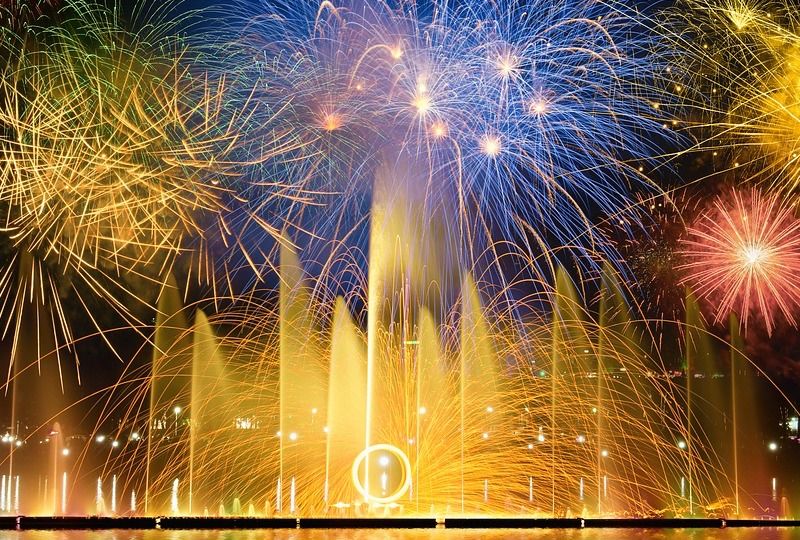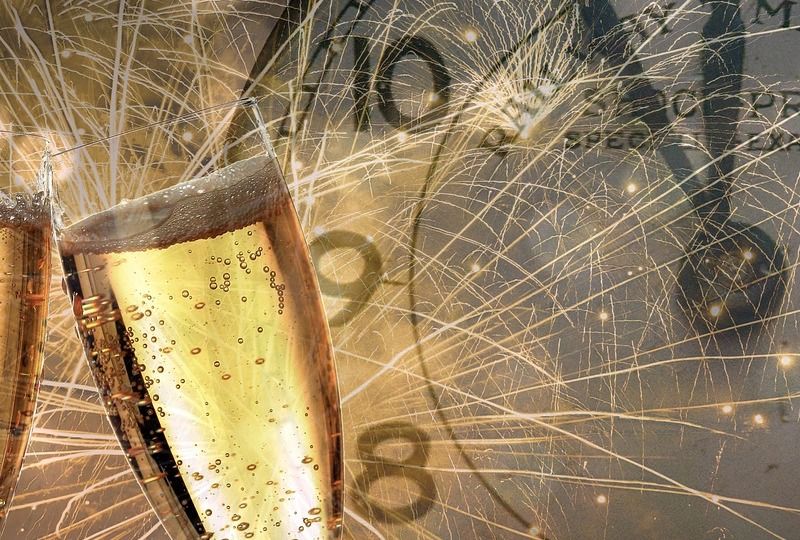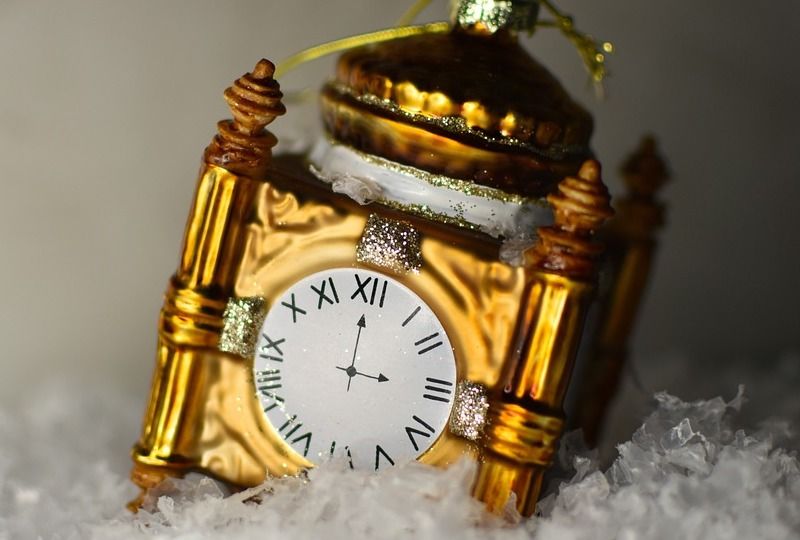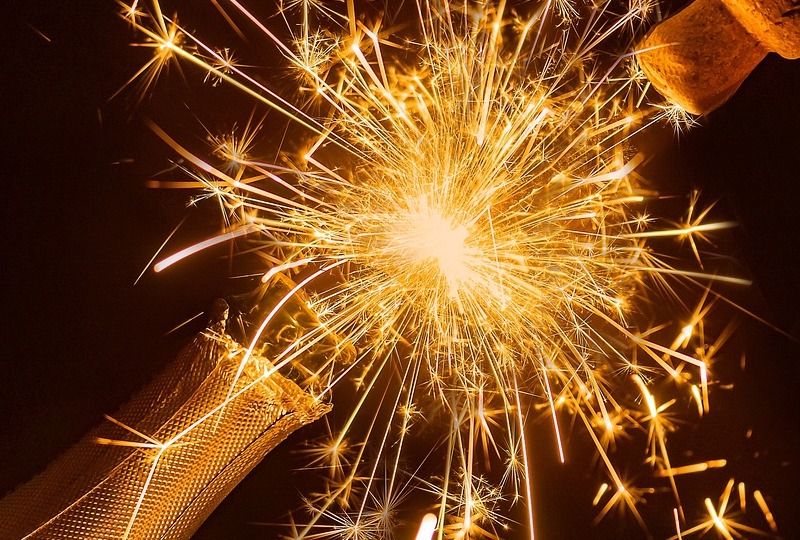How to Celebrate New Year's in German-Speaking Countries

After the high activity holiday that is Christmas, New Year’s Eve can be a great way to really let your hair down. Part of learning German is being familiar with the traditions and celebratory phrases.
With the holiday just around the corner, let's take a look at some of the phrases you can learn and easily use to ring in the New Year.
Of course, there are some phrases that you may want to use as you move into next year too.

New Year's Phrases in German
You've probably mastered the German phrases associated with Christmas. Just like in English, New Year's has its own set of phrases to wish people well. Some of them are popular in large regions - or among German speakers. Other phrases are more common in smaller regions or in certain settings.
As you start to countdown toward the end of the year, here are some phrases you can begin learning so you are prepared to wish people well - in German!
Most Popular German Phrases for the Celebration
Frohes Neues Jahr!
Happy New Year! This one should be easy to remember because it is so close to the English phrase. It's used in any region with a German-speaking population, so you are safe saying it and being understood anywhere there are native German speakers.
Prosit Neujahr!
The meaning is the same, Happy New Year! However, the direct translation is “Cheers to the New Year,” which is an interesting and very literarily satisfying way of saying the same thing. The phrase is more commonly used in northern Germany, particularly around the cities, but most people will know the meaning if you use this phrase to ring in the holiday.
Gutes Neues Jahr!
Good New Year! You probably didn't need the translation, and if you can't remember the other two ways of saying Happy New Year, this is a perfectly acceptable way of wishing someone a good start to the year. If you happen to be in Austria for the holiday, this is what you will probably hear as often (if not even more often) than the other celebratory phrases.
Another popular New Year's greeting in Austria is Schens Neichs Joa. Whichever phrase you like, you can say it to celebrate once the clock strikes midnight.
Gesundes Neues Jahr!
Healthy New Year! You can even shorten it to Gesundes Neues. Not quite as obvious as the other phrases for English speakers, this phrase does make sense to German speakers. Consider the phrase Gesundheit used when someone sneezes. Health is important, so they wish each other health in the New Year. It is more commonly used on the eastern side of Germany.
Other German Phrases to Celebrate the New Year
Here are a few phrases that you can use as the clock reaches midnight.
| Auf's neue Jahr! | To the New Year! |
| Einen guten Rutsch ins neue Jahr! | A good start in the new year! |
| Glück und Erfolg im neuen Jahr! | Good fortune and success in the New Year! |
| Alles Gute zum neuen Jahr! | Best wishes for the New Year! |
| Mögen alle deine Wünsche in Erfüllung gehen! | May all your wishes come true! |

Traditions
It's easy to see the Christmas traditions that derive from Germany, but you are probably a bit less familiar with the German New Year Traditions. If you want to do something a bit different, here are the things that people in German speaking nations tend to do prior to New Year's Eve, or Silvester.
Avoid Fish - Unless You Want Carp
According to oral tradition, Pope Sylvester I died choking on a fish bone on December 31, 335. A superstition sprang up around this morbid bit of history, and it has carried forward to today. Avoid eating fish so that you will have a healthier start to the year - unless you want carp.
Carp is considered just fine as a food. It's even better as a way of increasing your money for the year. If you can get past the smell, put a few carp scales in your wallet to ensure you always have a wealth of money.
Interestingly, the name for New Year's Eve is actually named after Pope Sylvester I. That will help you remember a lot more than just a fun fact as you celebrate Silvester this year. Some people also say Sylvestersabend. You can use whichever is easiest for you.
Feuerwerk - Fireworks
There are few nations that are quite so enthusiastic about fireworks for New Year’s as the German-speaking nations. They may be people who love dogs but getting them to reduce the number of fireworks they set off has been incredibly difficult because it is such an integral way of celebrating.
If you are in a German-speaking nation this time of year, try to get to a city to really watch something spectacular. You haven't seen anything quite like it.

Guten Rutsch - Have a Good Slide!
This phrase is definitely not something you have as an English speaker. Considering a lot of German speaking nations are snow-covered by this time of year, one of their well wishes phrases is Guten Rutsch, which means "Have a good slide." And they mean that literally.
If you are able to get out and experience some fun sliding down (or sledding down) some of that snow, so much the better.
Ugly Goodluck Charms
Why this time of year seems to celebrate ugly clothing and items (we have grown some interesting traditions around ugly Christmas sweaters), German-speaking nations tend to offer lucky charms for New Year’s. It isn't obligatory that the items be ugly, but that does seem to be the trend.
Typically, these good luck charms are Glückspilze, or "lucky mushrooms," as well as other traditionally lucky items (ladybugs and four-leaf clovers). For whatever reason, these items have seemed to shift more toward the ugly side, but that doesn't mean they will bring you any less luck.
Bleigießen - A Type of Molybdomancy
This activity is probably something you should do with help from people who have done it before as it is a bit riskier than giving someone a lucky charm.
A small bit of wax is placed on a spoon, then heated over a fire until the wax is melted. Once it is a liquid, the wax is poured into a cold bucket of water. The wax will form a shape as it is poured.
The shape can then be read to predict what kind of luck you will have over the next year. The shape you want is for the wax to form a ball, since that will mean luck will roll your way. The one you don't want is a cross, as that indicates there will be a death.
If you want to learn more about this interesting practice, check out Bleigießen - Lead Pouring. It talks about the history (they used to use lead, but that is now illegal as it is highly toxic).
Feuerzangenbowle - New Year's Punch
While English speakers tend to celebrate with champagne or sparkling water, German speakers tend to ring in the New Year with a nice bowl of fruit punch. Yes, it is typically enhanced with a bit of alcohol. This celebratory drink is also called Bowle. The direct translation of Feuerzangenbowle is "flaming fire-tongs punch,” so you know that it should pack a punch.
If you want to try your own punch, there are plenty of recipes online. Here's one to help you get started if you don't have time to do much research.

Getting Ready for Next Year
Of course, you can keep some of your English-speaking traditions. One could be to keep learning German at a pace that makes you feel you are making progress.
Good luck in the New Year!
